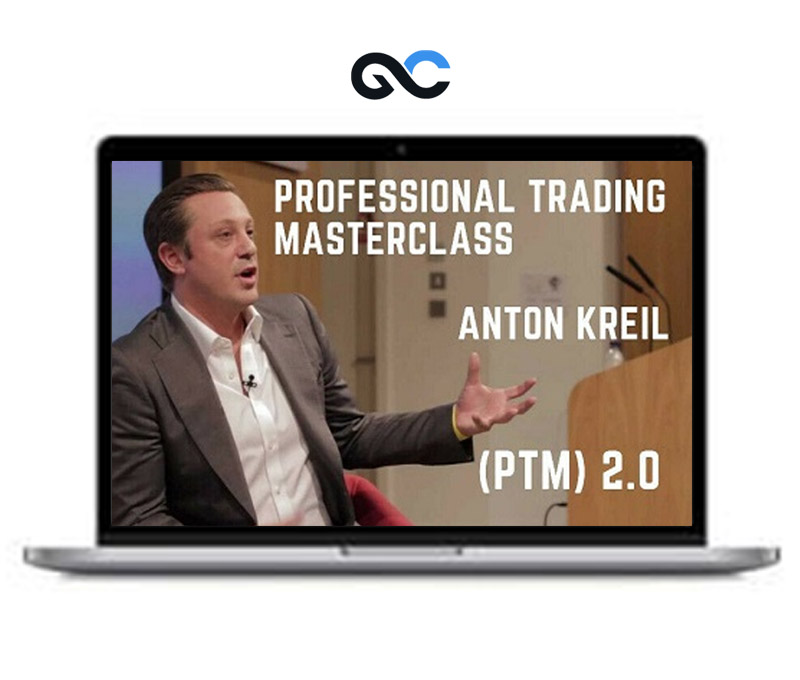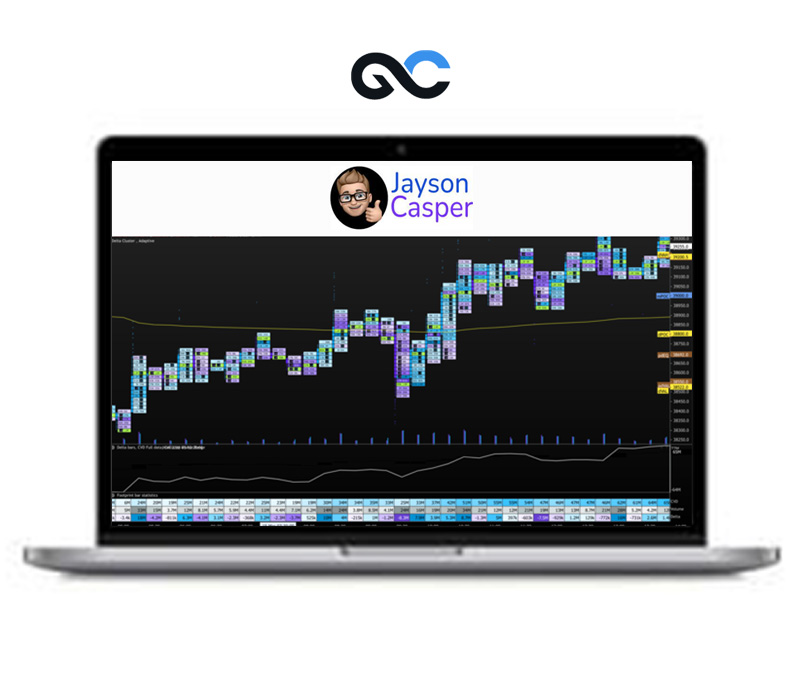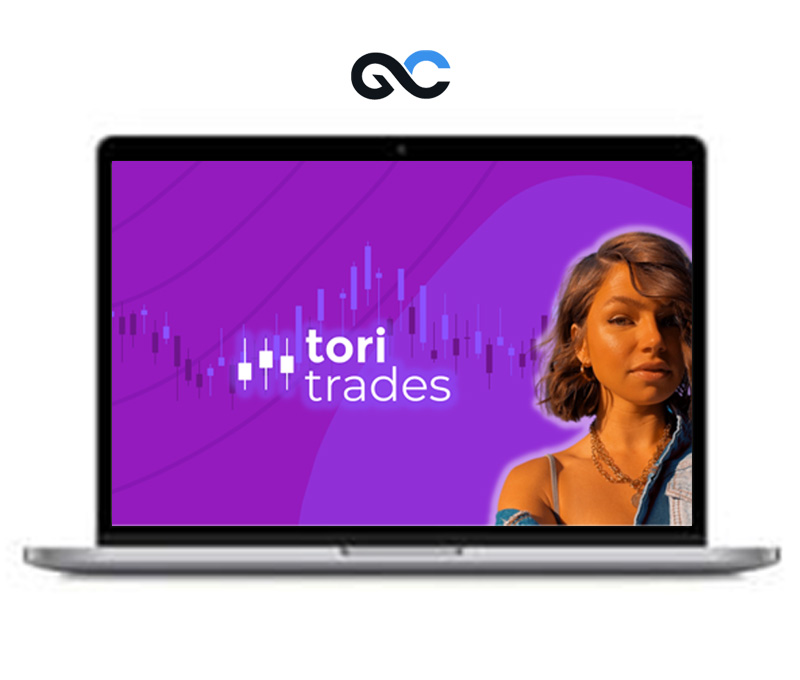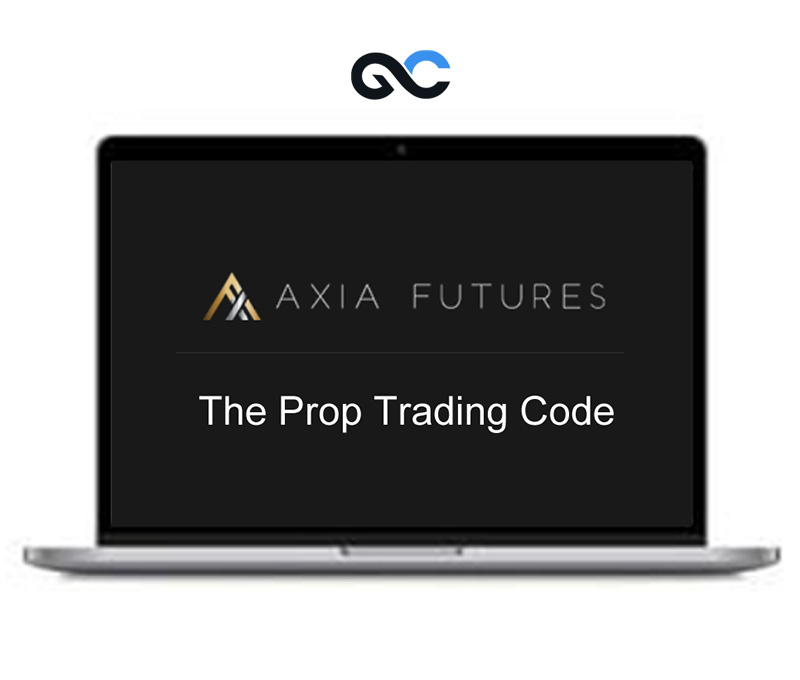Description
Download Proof | Lucas Inglese – Alpha Quant Program (12.58 )

![]()
Lucas Inglese – Alpha Quant Program
Alpha Quant Program – Lucas Inglese: Mastering Quantitative Finance and Algorithmic Trading
Quantitative finance and algorithmic trading have revolutionized the financial industry, enabling traders and investors to leverage data-driven strategies for more informed decision-making and superior returns. The Alpha Quant Program, led by renowned expert Lucas Inglese, offers a comprehensive curriculum designed to equip participants with the skills, knowledge, and tools needed to excel in this dynamic and competitive field. Let’s explore what this transformative program entails:
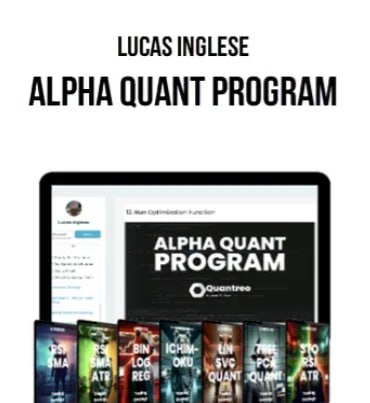
1. Introduction to Quantitative Finance
- Overview of quantitative finance and its role in modern financial markets.
- Understanding the principles of mathematical modeling, statistical analysis, and quantitative methods in finance.
- Exploring the evolution of quantitative trading strategies and their impact on market dynamics.
2. Fundamentals of Algorithmic Trading
- Introduction to algorithmic trading and its advantages over traditional manual trading approaches.
- Understanding the components of algorithmic trading systems including data collection, strategy development, backtesting, and execution.
- Overview of algorithmic trading platforms, APIs, and programming languages commonly used in the industry.
3. Data Analysis and Quantitative Modeling
- Techniques for collecting, cleaning, and analyzing financial data using Python, R, or other programming languages.
- Building quantitative models for forecasting asset prices, volatility, and other key financial metrics.
- Leveraging statistical techniques, machine learning algorithms, and time series analysis for predictive modeling.
4. Portfolio Optimization and Risk Management
- Strategies for constructing diversified portfolios and optimizing asset allocation based on risk-return objectives.
- Techniques for measuring and managing portfolio risk including value-at-risk (VaR), conditional value-at-risk (CVaR), and stress testing.
- Implementing risk management techniques such as stop-loss orders, position sizing, and hedging strategies.
5. Algorithmic Trading Strategies
- Overview of popular algorithmic trading strategies including mean reversion, trend following, statistical arbitrage, and machine learning-based approaches.
- Designing and backtesting trading strategies using historical data to assess performance and profitability.
- Optimizing trading strategies through parameter tuning, strategy refinement, and robustness testing.
6. High-Frequency Trading (HFT) and Market Microstructure
- Understanding the mechanics of high-frequency trading and its impact on market liquidity, price discovery, and market efficiency.
- Exploring market microstructure concepts such as order types, market impact, and order book dynamics.
- Techniques for developing and implementing high-frequency trading strategies while managing execution risks.
7. Algorithmic Trading Infrastructure and Technology
- Overview of infrastructure components including hardware, software, connectivity, and co-location services required for low-latency trading.
- Understanding the importance of latency optimization, network architecture, and proximity to exchanges in algorithmic trading.
- Evaluating and selecting trading platforms, execution brokers, and market data providers for optimal performance.
8. Regulation and Compliance
- Understanding regulatory frameworks and compliance requirements for algorithmic trading activities.
- Ensuring adherence to regulations such as Reg NMS, MiFID II, and MAR to maintain market integrity and investor protection.
- Implementing internal controls, monitoring systems, and audit trails to demonstrate regulatory compliance.
9. Backtesting and Performance Evaluation
- Techniques for conducting robust backtesting of trading strategies to assess performance and validate assumptions.
- Utilizing performance metrics such as Sharpe ratio, maximum drawdown, and alpha-beta coefficients to evaluate strategy effectiveness.
- Incorporating transaction costs, slippage, and market impact into backtesting simulations for realistic performance estimation..
In conclusion, the Alpha Quant Program – Lucas Inglese offers a comprehensive and practical education in quantitative finance and algorithmic trading, empowering participants to thrive in the rapidly evolving landscape of financial markets. Whether you’re an aspiring quant trader, portfolio manager, or financial engineer, this program equips you with the expertise and tools needed to succeed in this exciting field.




